For the past seventeen years the Cheyenne River Ranch (CRR) has been our home. The move from the Broken Heart Ranch (BHR) to the CRR was driven by three factors:
- The land around the BHR was becoming very commercialized and there wasn't much opportunity for growth.
- The CRR had opportunity for growth, where large landscape conservation would be possible.
- The land on the CRR came with a 24,000 acre grazing permit on the Buffalo Gap National Grasslands.
There were just two caveats to that permit:
- The American Buffalo weren't one of the permitted species... what? We quickly rectified that.
- We would need to build twenty-four miles of buffalo fence, which we were able to do with the help of the Nature Conservancy.
All animals that graze public lands, must have identification of who they belong to - our identification would be an ear tag. We spruced up the existing corral system with the guidance of Dr. Temple Grandin and did our first round-up and ear-tagging a year later. I believe we are some of the gentlest buffalo handlers around, and with Dan's leadership and the assistance of other buffalo handler/friends all went well. Days later the buffalo were released onto the Buffalo Gap National Grasslands, roaming their homeland once again after a 200-year absence. It was moving and emotional.
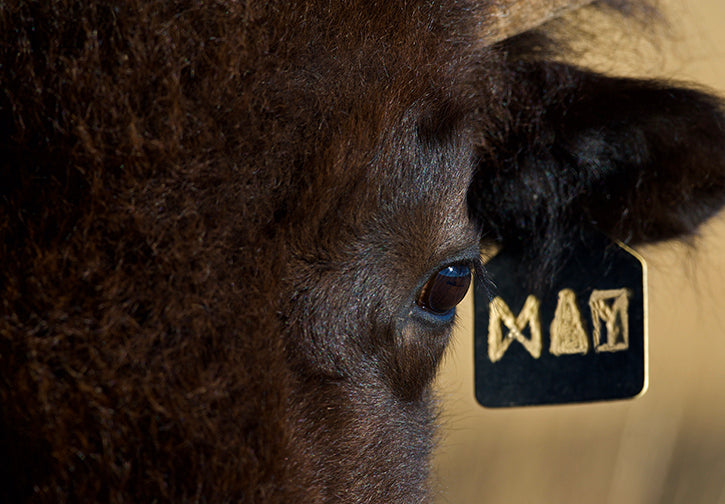
But, I'm not going to lie, it was stressful on the buffalo and the people. Thereafter, we didn't ear tag annually. But as the years passed and as our land base and herd grew, along with other herds of bison on the Pine Ridge Reservation and Badlands National Park, which also border the Buffalo Gap National Grasslands, it became increasingly important.

We always want to be transparent with you about our management, so here is the run-down on our round-up. Days before we start working the buffalo they are brought into a 200-acre pasture that's next to our newly constructed corral system.

There are water tanks inside the corrals and Colton has also placed grass hay throughout the various pens. The gates are left open, giving the buffalo access to the water and hay, and to get them comfortable with moving in and out of the system. Colton has spent many days doing any needed repairs and working out any kinks learned from the prior year.
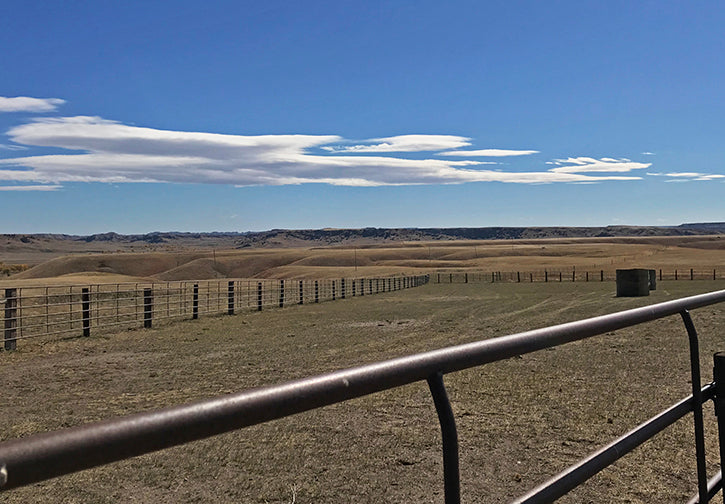
The night before we start working the buffalo, the herd is rounded-up and brought into the largest part of the corral, which too is supplied with water and plenty of grass hay.

Our buffalo crew consisted of family, including the little boys, Wild Idea Buffalo staff members and one of our neighboring sourcing partner's foreman. We met early each morning at the corrals and Colton gave us our directions, complete with safety and humane handling instructions, before we began.
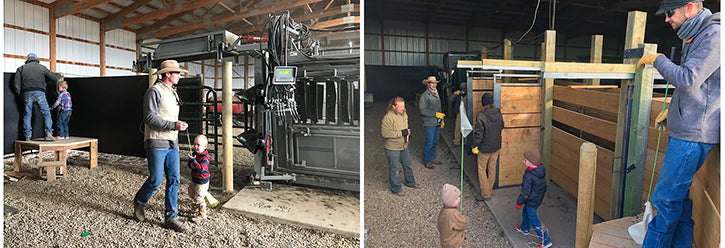
The buffalo are moved in batches through a series of pens within the corral system. The pens become smaller as they get closer to the squeeze chute and the number of buffalo in each pen is reduced with each pen size.
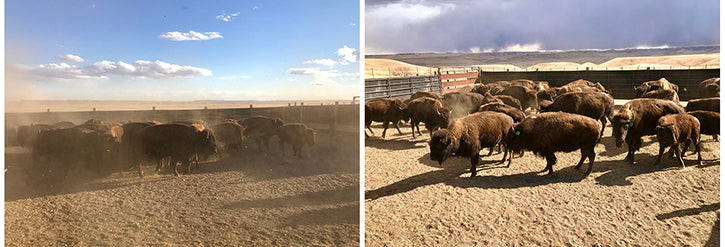
There are also a series of heavy gates that need to be opened and shut quickly. It is physical work and occasionally requires one to bring out their inner gymnast.
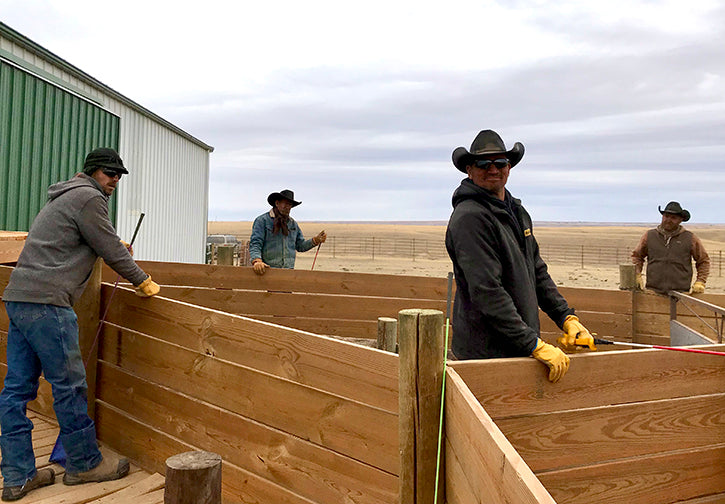
My position was manning the back of the smallest pen, prior to them going through the chute. Between the dust from the bison and the wind, we become covered in dirt and our eyes burned red. I snapped a selfie for documentation once I got home. Yikes.
 At this point, the buffalo are moved forward four at a time. This requires immediate reaction in cutting back the rest and speediness in closing and opening gates.
At this point, the buffalo are moved forward four at a time. This requires immediate reaction in cutting back the rest and speediness in closing and opening gates.
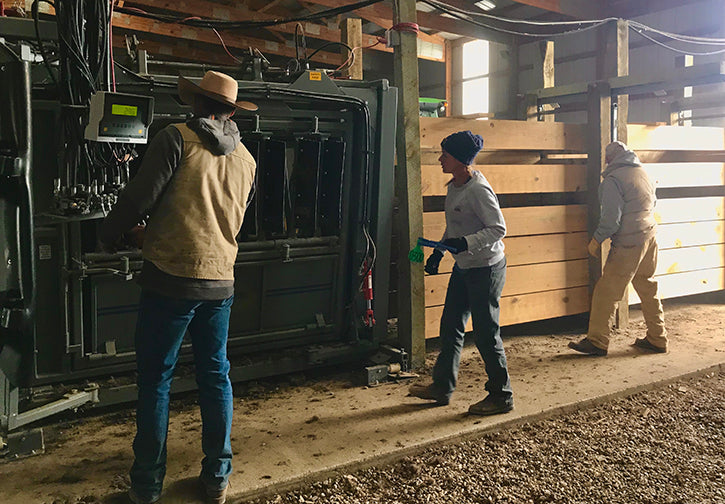
Jilian worked closely alongside Colton, recording information on a computer, while Dan monitored all and manned a gate. Colton estimated three days to work through seven hundred head of buffalo, but we wrapped it up in two, as all went very smoothly. At the end, we gathered inside the barn for a beer, a hot meal and a group shot. The outside crew, worn out, now resembled coal miners.
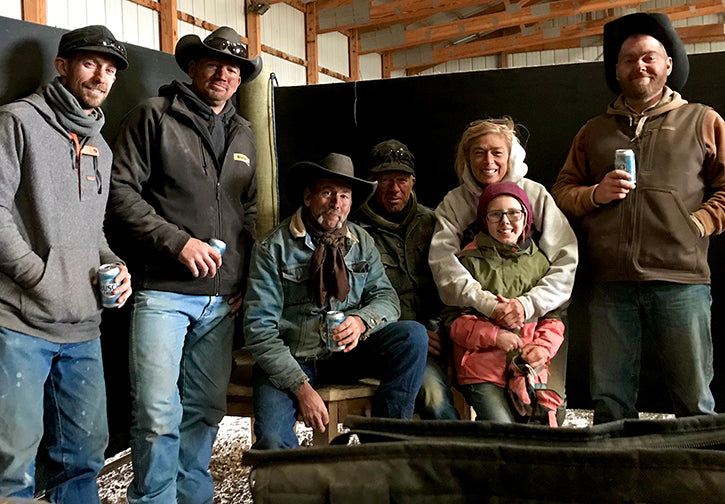
While the inside crew, although plenty worn out, looked a whole lot better.
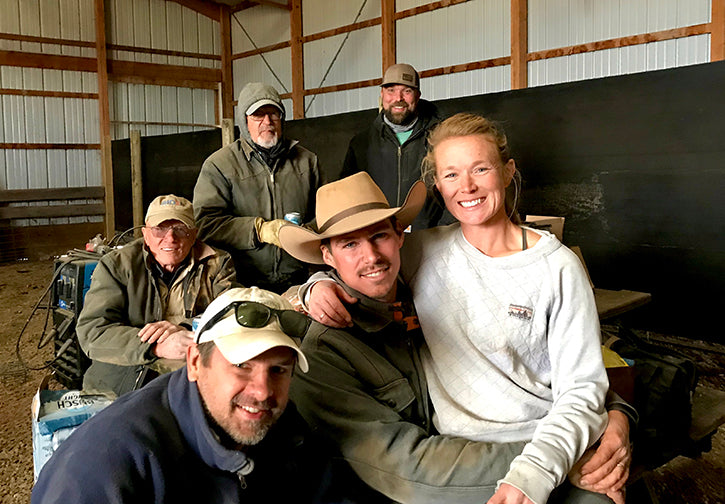
The buffalo also celebrated, now back out on pasture, gathered in their family groups and free to graze. They stayed there for a few days before we released them onto the Buffalo Gap National Grasslands.

Our buffalo have crossed the Cheyenne River around this time of year for the past sixteen years and they know the drill.
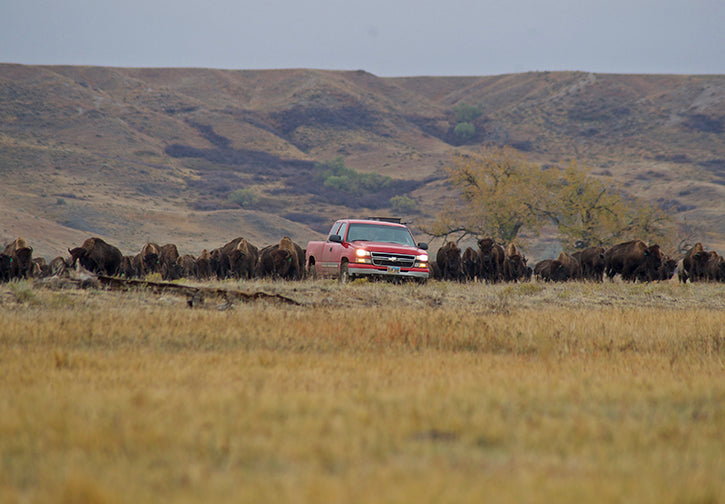
As Colton lead them through the gates that took them to the Cheyenne River, their pace picked up before hitting the cold water.

The splashing sounds of hundreds of thousands of pounds of buffalo hitting the water filled the air.

A few stopped for a drink along the way before gathering on the other side.

Colton is now beside me and we both turned as the sound of splashing shifted to thousands of hooves climbing the river banks. It was incredible to witness!

They are once again roaming on your public lands. Lands that they have called home for over 170,000 years. And, yes - it is still moving and emotional.

32 comments
This is so wonderful. Thank you for taking the time to document and share!
Wow. Thanks for this, Truly amazing, Mark Goodman